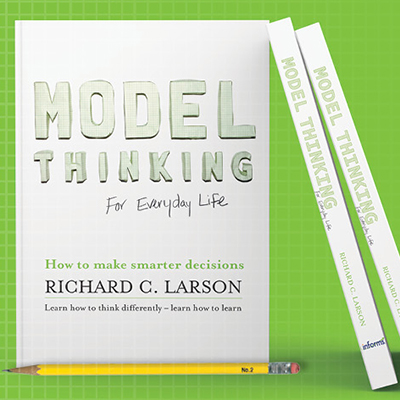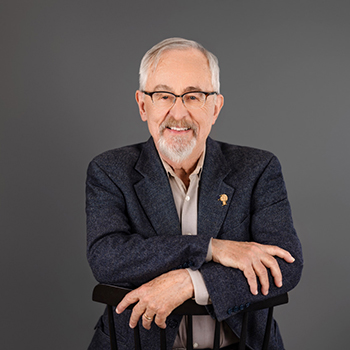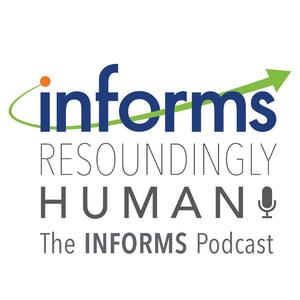Published: August 27, 2024

In this episode, I’m joined by a longtime member of the INFORMS community, Richard Larson, post-tenure professor with MIT, past-president of both ORSA and INFORMS, recipient of the INFORMS Lanchester Prize, and author many times over, including his most recent book, Model Thinking for Everyday Life.
What’s wonderful about Dick’s latest book, is its innovative and accessible approach to showing you how to think like, well an INFORMS member! The book combines real life examples with Dick’s own personal experiences to show you how to shift the way you problem solve and improve your own decision making processes. But most of all, it’s a fun and entertaining read!
So, to make a long story short, they settled on me as the youngest member of the Science and Technology Task Force Crime Commission. I moved to Arlington, VA, for awhile and worked with Al Blumstein and a group at the Science and Technology Task Force, and that’s what started my career in operations research, a crime. As I said in the foreword somewhere, if I knew who those two girls were who were thieves, I’d take them to dinner now because they started for me, a beautiful career in operations research.
Interviewed this episode:

Richard Larson
MIT
Dr. Larson received his Ph.D. from MIT where he is Mitsui Professor in MIT’s Institute for Data, Systems, and Society (IDSS). He is founding director of MIT LINC and Principal Investigator of MIT BLOSSOMS. The majority of his career has focused on operations research as applied to services industries. He is author, co-author or editor of seven books and over 100 scientific articles, primarily in the fields of urban service systems, queueing (known as “Dr. Queue”), logistics, disaster management, disease dynamics, dynamic pricing of critical infrastructures, education and workforce planning. His first book, Urban Police Patrol Analysis (MIT Press, 1972) was awarded the Lanchester Prize of the Operations Research Society of America (ORSA). He is co-author, with Amedeo Odoni, of Urban Operations Research, Prentice Hall, 1981 (republished in 2007). He served as President of ORSA, (1993-4), and INFORMS (2005). He has served as consultant to the World Bank, United Nations, Rand Corp., Kuwait Foundation for the Advancement of Science, Hibernia College in Ireland, Hong Kong University, the U.S. Department of Justice, American Airlines and various other corporations. Dr. Larson‘s research on queues has not only resulted in new computational techniques (e.g., the Queue Inference Engine and the Hypercube Queueing Model), but has also been covered in national media (e.g., ABC TV’s 20/20, NPR, CNN.com, the Wall Street Journal and the New York Times). Dr. Larson served as Co-Director of the MIT Operations Research Center (over 15 years in that post). He is a member of the National Academy of Engineering and is an INFORMS Founding Fellow. He has been honored with the INFORMS President’s Award and the Kimball Medal.
Dr. Larson is Mitsui Professor in MIT’s Institute for Data, Systems, and Society (IDSS). He is founding director of MIT LINC and Principal Investigator of MIT BLOSSOMS. The majority of his career has focused on operations research as applied to services industries. He is author, co-author or editor of seven books and over 100 scientific articles, primarily in the fields of urban service systems, queueing (known as “Dr. Queue”), logistics, disaster management, disease dynamics, dynamic pricing of critical infrastructures, education and workforce planning. He is 100% in favor of freedom-of-speech initiatives.
Related Episodes
Episode Transcript
Transcript pending.
Want to learn more? Check out the additional resources and links listed below for more information about what was discussed in the episode.
Model Thinking for Everyday Life, Amazon
Richard “Dick” Larson Achieves Prominent Placement in The Wall Street Journal
Tags: Dick Larson, Dr. Queue, model thinking



